Issue :- 7
HAIR LOSS PROBLEMS AND TREATMENT BY UNANI MEDICINE
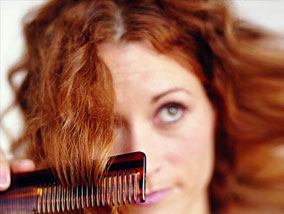
What is Hairproblem?
Everyone loses some hair every day. Losing up to 100 hairs a day is normal.
But if hair loss runs in your family, you could lose a lot more hair. With this kind of hair loss, you may end up with bald spots if you are a man. If you are a woman, you may find that the hair on the top of your head is slowly thinning. About half of all people have this type of hair loss by around age 50.
Although hair loss is fairly common, it can be a tough thing to live with, especially when it changes how you look.
Common causes of hair loss include
- Family history. In most cases, hair loss is inherited, which means it's passed down from one or both of your parents. This is called male-pattern or female-pattern hair loss.
- Stress, including physical stress from surgery, illness, or high fever.
- Chemotherapy, which is powerful medicine that destroys cancer cells.
- Damage to your hair from pulling it back too tightly, wearing tight braids or ponytails, or using curling irons or dyes.
- Age. You grow less hair as you get older. Hair also gets thinner and tends to break more easily as you age.
- Poor diet, especially not getting enough protein or iron.
- Thyroid diseases, such as hypothyroidism and hyperthyroidism.
- Ringworm of the scalp, which is common in children.
- Your symptoms will depend on what kind of hair loss you have.
If your hair is thinning, it happens slowly over time, so you may not notice the hairs falling out. If your hair is shedding, then clumps of hair fall out. You may lose hair all over your scalp, which is called general hair loss. Or you may lose hair only in one area, which is called focal hair loss.
With inherited hair loss , men usually get bald spots around the forehead or on the top of the head, while women have some thinning all over the scalp, but mostly on the top of the head.
CAUSES OF HAIR LOSS
Physical stress
Any kind of physical trauma—surgery, a car accident, or a severe illness, even the flu—can cause temporary hair loss. This can trigger a type of hair loss called telogen effluvium.

Pregnancy
Pregnancy is one example of the type of physical stress that can cause hair loss (that and hormones). Pregnancy-related hair loss is seen more commonly after your baby has been delivered rather than actually during pregnancy.
Too much vitamin A
Overdoing vitamin A-containing supplements or medications can trigger hair loss. This is a reversible cause of hair loss and once the excess vitamin A is halted, hair should grow normally.

Lack of protein
If you don't get enough protein in your diet, your body may ration protein by shutting down hair growth, There are many great sources of protein, including fish, meat, and eggs etc.

Male pattern baldness
About two out of three men experience hair loss by age 60, and most of the time it's due to male pattern baldness. This type of hair loss, caused by a combo of genes and male sex hormones, usually follows a classic pattern in which the hair recedes at the temples, leaving an M-shaped hairline.

Heredity
Female-pattern hair loss, called androgenic or androgenetic alopecia, is basically the female version of male pattern baldness. “If you come from a family where women started to have hair loss at a certain age, then you might be more prone to it.

Female hormones
Just as pregnancy hormone changes can cause hair loss, so can switching or going off birth-control pills. This can also cause telogen effluvium, and it may be more likely if you have a family history of hair loss. The change in the hormonal balance that occurs at menopause may also have the same result. “The androgen (male hormone) receptors on the scalp becoming activated.

Emotional stress
Emotional stress is less likely to cause hair loss than physical stress, but it can happen, for instance, in the case of divorce, after the death of a loved one, or while caring for an aging parent. More often, though, emotional stress won't actually precipitate the hair loss.

Anemia
Almost one in 10 women aged 20 through 49 suffers from anemia due to an iron deficiency (the most common type of anemia), which is an easily fixable cause of hair loss. You doctor will have to do a blood test to determine for sure if you have this type of anemia.

Hypothyroidism
Hypothyroidism is the medical term for having an underactive thyroid gland. This little gland located in your neck produces hormones that are critical to metabolism as well as growth and development and, when it’s not pumping out enough hormones, can contribute to hair loss.
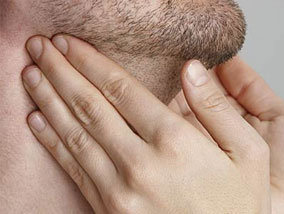
Vitamin B deficiency
low levels of vitamin B are another correctible cause of hair loss. Like anemia, simple supplementation should help the problem. So can dietary changes. Find natural vitamin B in fish, meat, starchy vegetables, and non-citrus fruits. As always, eating a balanced diet plentiful in fruits and vegetables as well as lean protein and “good” fats such as avocado and nuts will be good for your hair and your overall health.

Autoimmune-related hair loss
This is also called alopecia areata and basically is a result of an overactive immune system.

Lupus
Other autoimmune diseases such as lupus can also cause hair loss. Again it’s a case of mistaken identity: overzealous immune cells attack the hair. Unfortunately, hair loss of this type is “scarring,” meaning the hair will not grow back.
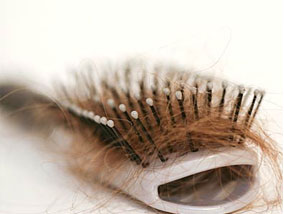
Dramatic weight loss
Sudden weight loss is a form of physical trauma that can result in thinning hair. This could happen even if the weight loss is ultimately good for you. It’s possible that the weight loss itself is stressing your body or that not eating right can result in vitamin or mineral deficiencies. Loss of hair along with noticeable weight loss may also be a sign of an eating disorder such as anorexia or bulimia.

Chemotherapy
Some of the drugs used to beat back cancer unfortunately can also cause your hair to fall out. “Chemotherapy is like a nuclear bomb,” It destroys rapidly dividing cells. That means cancer cells, but also rapidly dividing cells like hair.”

Polycystic ovary syndrome
Polycystic ovary syndrome (PCOS) is another imbalance in male and female sex hormones. An excess of androgens can lead to ovarian cysts, weight gain, a higher risk of diabetes, changes in your menstrual period, infertility, as well as hair thinning. Because male hormones are overrepresented in PCOS, women may also experience more hair on the face and body.
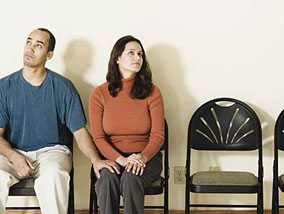
Antidepressants, blood thinners, and more
Certain other classes of medication may also promote hair loss. More common among them are certain blood thinners and the blood-pressure drugs known as beta-blockers.

Overstyling
Vigorous styling and hair treatments over the years can cause your hair to fall out. Examples of extreme styling include tight braids, hair weaves or corn rows as well as chemical relaxers to straighten your hair, hot-oil treatments or any kind of harsh chemical or high heat. Because these practices can actually affect the hair root, your hair might not grow back.
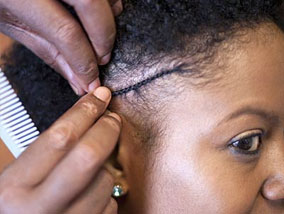
Trichotillomania
Trichotillomania, classified as an “impulse control disorder,” causes people to compulsively pull their hair out. It’s sort of like a tic, the person is constantly playing and pulling their hair. Unfortunately, this constant playing and pulling can actually strip your head of its natural protection: hair. Trichotillomania often begins before the age of 17 and is four times as common in women as in men.

Aging
It’s not uncommon to see hair loss or thinning of the hair in women as they enter their 50s and 60s.


Anabolic steroids
If you take anabolic steroids—the type abused by some athletes to bulk up muscle—you could lose your hair. Anabolic steroids can have the same impact on the body as polycystic ovary disease (PCOS), as the mechanism is the same.
For Consultation click hereCopyright 2014 Unani Herbal
If you wish to cancel your subscription to this newsletter click here





